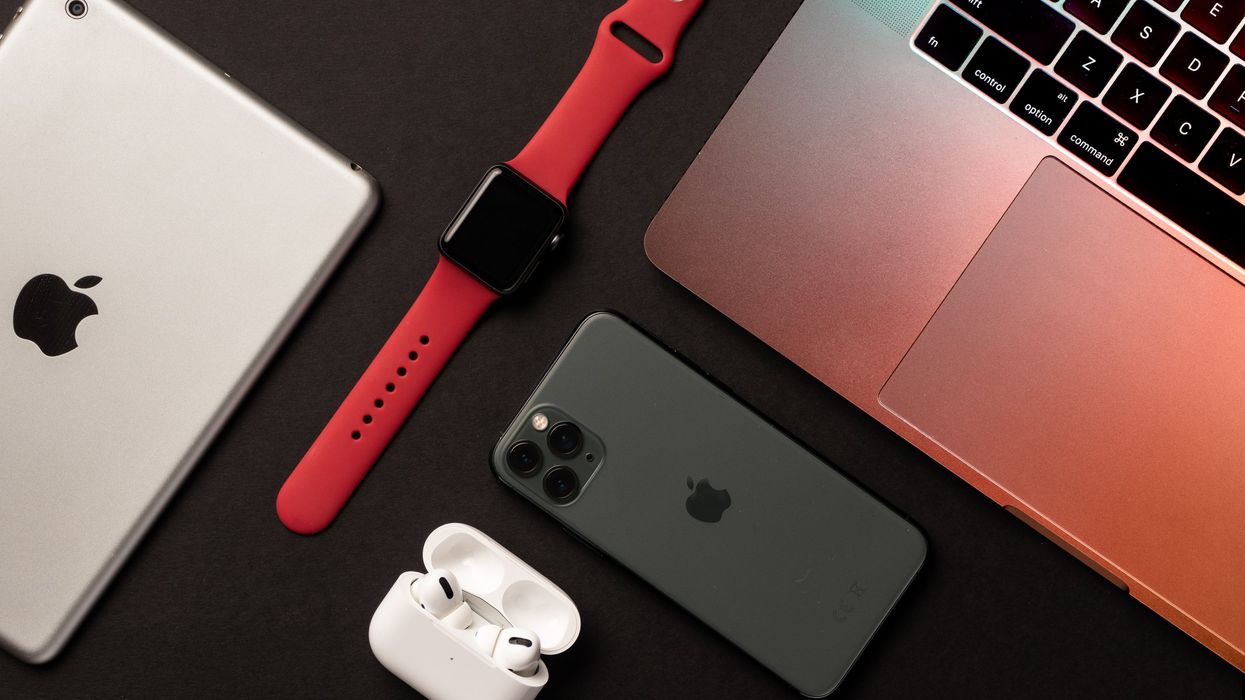
Shahid Jamil/Getty Images

Unless companies have the resources that Apple does, the Justice Department’s action could destroy businesses that customers love without providing any benefit.
When we bought Apple products, we did so because the user experience was seamless and easy, and surveys suggest our experience is true for many consumers. Other companies want to offer their services on the tech giant’s platform, and Apple, as a private firm with a brand to uphold, may not be eager to promote a competitor’s service.
But for some reason, the Department of Justice’s Antitrust Division believes it should. This is a dangerous misapplication of antitrust law and puts every successful business in the government’s crosshairs.
American antitrust law does not punish firms by forcing them to provide a public service to competitors just because they have become more successful.
Although the United States has a proud tradition of competition enforcement and protecting consumers, the Justice Department’s case against Apple inverts the usual goals of antitrust law.
In this sprawling lawsuit, unlike a 2012 case in which Apple colluded with book publishers to raise prices, the focus is on the tech company’s internal efforts to maintain its product ecosystem. Rather than breaking up attempts to collude at the expense of consumers, today’s scrutiny aims to help Apple’s competitors at the expense of consumers.
The first charge listed in the complaint focuses on Apple’s attempts to restrict the use of “super apps,” which let users access multiple services such as messaging, gaming, payments, and other functions all on one application. Critics argue that Apple discriminates against super apps because they break its business model by allowing users to access everything they need on one app, on any device, making the need to use special Apple products unnecessary. Others argue that super apps, such as China’s We-Chat, lead to excessive concentrations of user data and necessary services, like finance, onto third-party platforms, making them unsafe.
The Justice Department also asserts that Apple products, such as the Apple Watch, MacBook, and iPhone, work better together than with other brands and, as a result, have harmed competitors. The government also argues that its messaging service and the beloved “blue text bubble” is only available through iMessage and texting non-iOS users converts to “green text,” which comes with subtle but noticeable differences.
Furthermore, Apple’s competitors take issue with how the company privileges its own payment system, the way it runs its App Store, how it allows users to protect their browsing activity from third-party data brokers, and so on.
Regardless, as the owner of the iOS platform, the choice of whether to offer such options is Apple’s, as the Ninth Circuit Court of Appeals recently agreed in Epic v. Apple. The government should narrowly tailor its current lawsuit to conduct that harms consumers, not Apple’s competitors.
The Supreme Court has consistently ruled that companies do not have a legal obligation to do business with or extend access to competitors just because they hold a strategic position in the market. American antitrust law does not punish firms by forcing them to provide a public service to competitors just because they have become more successful or built a unique product that consumers prefer.
It’s possible that some of Apple’s conduct may be anticompetitive and undermine consumer choice without making consumers better off, but that isn’t what the Justice Department is saying. It is this precise and principled analysis that the courts should apply in considering Apple’s actions rather than taking a sledgehammer to the Cupertino tech giant’s curated ecosystem simply because other companies cannot offer a more attractive service to consumers.
The lawsuit will take years and cost millions, both to taxpayers and to Apple, which will then pass those costs on to customers. The government should quit or, if its antitrust lawyers can identify actions that actually harm consumers, refocus the charges on those issues.
The Justice Department’s stance against Apple signals an approach to antitrust liability that will expose to costly litigation companies that successfully revolutionize markets, gain dominant market share by serving consumers, or simply look too big to the Department of Justice. The lawsuit shows that enforcement agencies believe companies that achieve a strategically advantageous market position owe a special obligation to society that other businesses don’t.
Unless these firms all have the resources that Apple does — which few do — this could destroy businesses that customers love without providing any benefit. The long-standing commitment to protecting the welfare of consumers must remain the focus of antitrust law. Otherwise, consumers, the economy, and innovation generally will be hurt.
Ryan M. Yonk
Ethan Yang